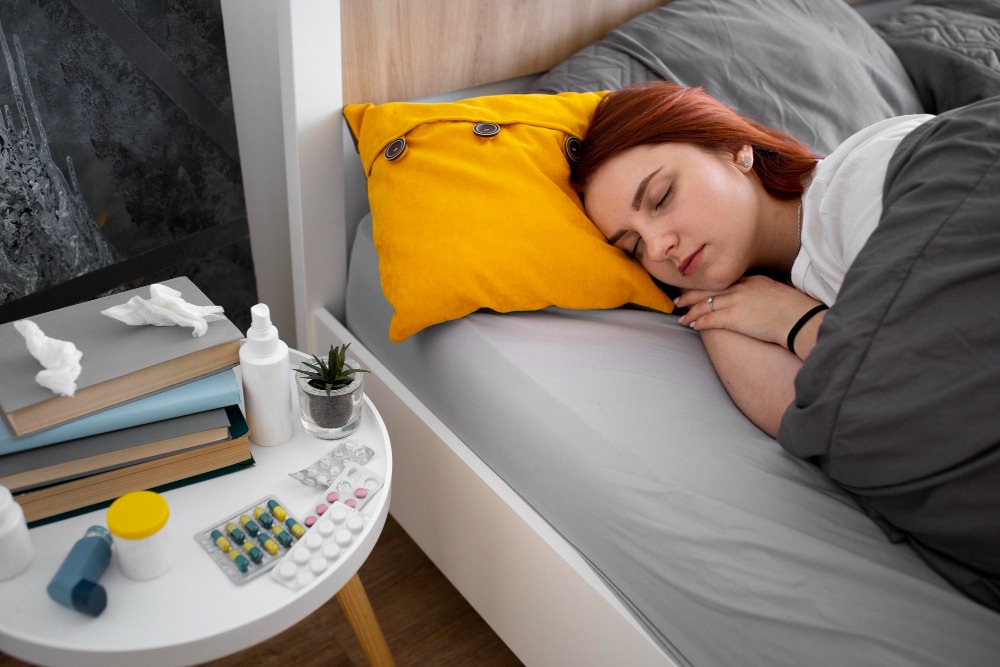Introduction
Welcome to your journey toward better sleep and higher energy in 2024! In today’s fast-paced world, getting enough restful sleep is more crucial than ever. Good sleep boosts not just your mood and productivity, but also your overall health. Yet, with our busy schedules and the constant buzz of technology, drifting off to dreamland can sometimes feel like an uphill battle. But fear not! Science comes to the rescue with proven strategies to enhance your sleep quality and energy levels. In this blog, we’ll delve into five effective, science-backed practices to help you achieve the restorative sleep your body craves. Stick around to turn those restless nights into peaceful slumbers and greet each day with renewed vitality!
Importance of Quality Sleep
In the hustle and bustle of our day-to-day lives, sleep is often the first thing to be compromised. However, the importance of quality sleep cannot be overstressed. Sleep acts as the foundation of our physical and mental health, influencing everything from cognitive function and mood to immunity and heart health. Research has shown that insufficient or low-quality sleep can lead to a range of negative outcomes, including increased stress levels, weight gain, and higher risk of chronic diseases like diabetes and heart disease.
Quality sleep, on the other hand, can be a game-changer. It enhances memory and learning, aids in the repair of muscle and tissues, and resets our emotional compass, making us more resilient to stress. It’s not just about quantity; getting 7-9 hours of sleep is a good target for most adults, but the quality of that sleep is equally crucial. High-quality sleep means going through all the stages of sleep, from light to deep sleep, and REM sleep, uninterrupted and without too much tossing and turning. This is when the body and brain are able to fully benefit from sleep’s restorative processes.
Understanding the profound impact sleep has on our overall well-being, it’s important to adopt strategies that will improve both the quality and quantity of sleep. Here are five science-backed strategies designed to help you achieve optimal sleep quality and boost your energy levels in 2024.
5 Science-Backed Strategies for Optimal Sleep Quality and Energy in 2024
Improving your sleep quality can seem like a daunting task, but with these science-backed strategies, you’re well on your way to waking up refreshed and energized each day.
Establishing a Bedtime Routine
One of the most effective approaches to enhancing sleep quality is establishing a consistent bedtime routine. The power of routine lies in its ability to signal to your brain that it’s time to wind down and prepare for sleep. This can include activities such as reading, taking a warm bath, or practicing light stretches. What’s important is consistency; doing these activities at the same time each night helps set your body’s internal clock, making it easier to fall asleep and wake up naturally. Research emphasizes the importance of reducing exposure to blue light from screens at least an hour before bed, as it can disrupt the production of melatonin, the hormone responsible for sleep.
Optimizing Sleep Environment
Your sleep environment plays a crucial role in the quality of your rest. Several factors need to be considered to create an ideal sleeping environment. The bedroom should be cool, with the ideal temperature being somewhere between 60 to 67 degrees Fahrenheit, as cooler temperatures promote better sleep. Ensure your bedroom is as dark as possible, using blackout curtains or a sleep mask if necessary. Noise should be minimized, but if that’s not possible, consider using a white noise machine to mask disruptive sounds. Your mattress and pillows should also support your body comfortably, so if you’re frequently waking up sore or stiff, it might be time for an upgrade.
Practicing Mindfulness and Relaxation Techniques
In our always-on world, learning to quiet the mind is more important than ever for quality sleep. Mindfulness and relaxation techniques like meditation, deep breathing exercises, and progressive muscle relaxation can significantly improve sleep quality. These practices help reduce stress and anxiety, which are common culprits of sleep disturbances. Incorporating these techniques into your bedtime routine can help ease the transition from wakefulness to sleep, enabling a deeper and more restorative sleep.
Dietary Considerations for Better Sleep
What and when you eat can impact your sleep. To promote better sleep, avoid large meals, caffeine, and alcohol close to bedtime. While a small snack before bed can help stave off hunger, heavy or rich foods can cause discomfort and disrupt sleep. Foods that are high in magnesium and potassium, such as bananas, avocados, and almonds, can help relax muscles and promote a feeling of calm. Additionally, consider a cup of herbal tea like chamomile or peppermint, which are known for their relaxing properties.
Exercising for Improved Sleep Quality
Regular exercise is a powerful tool for improving sleep quality and energy. It can help regulate your sleep cycle, improve the duration and quality of your sleep, and even reduce symptoms of insomnia and sleep apnea. However, timing is essential; try to finish exercising at least a few hours before bedtime to give your body time to wind down. The type of exercise can vary according to your preference and fitness level, but even light activities like walking can have a significant impact on your sleep quality.
In conclusion, improving your sleep quality is an investment in your overall health and well-being. By establishing a calming bedtime routine, optimizing your sleep environment, practicing mindfulness and relaxation techniques, making dietary adjustments, and incorporating regular exercise, you can significantly enhance the quality and quantity of your sleep. These science-backed strategies are designed to help you achieve optimal sleep quality and energy in 2024, enabling you to wake up feeling refreshed and ready to tackle each day with vigor.
Conclusion
In the fast-paced world of 2024, optimizing your sleep quality isn’t just a luxury; it’s a necessity for maintaining high energy levels and overall well-being. Implementing these five science-backed strategies – establishing a consistent sleep schedule, creating a bedtime routine, making your bedroom a sleep sanctuary, managing your exposure to light, and mindfulness meditation – can significantly enhance the quality of your rest. While these steps might require some adjustments to your current lifestyle, the rewards of better sleep and increased energy are well worth the effort. Remember, the journey to better sleep is a personal one, and it may take some time to see the full benefits. Be patient and persistent, and you’ll soon discover that these changes can transform not only your nights but your days too. Here’s to restful nights and energetic days ahead!


